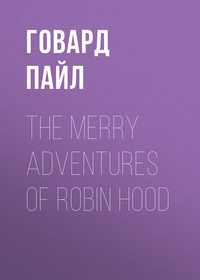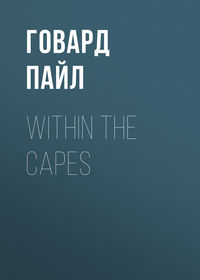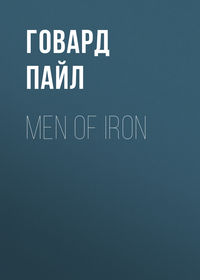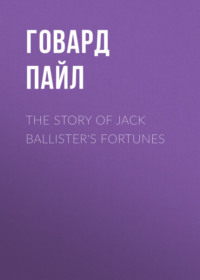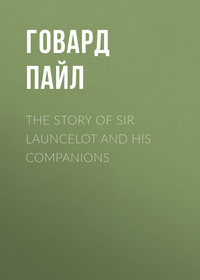 полная версия
полная версияTwilight Land
“Oh, fool! fool! Beware what thou doest. Within here shalt thou find death!”
There was a key of brass in the door. The King of the Demons turned the key and opened the door. The young man entered after him.
Aben Hassen the Fool found himself in a vast vaulted room, lit by the light of a single carbuncle set in the centre of the dome above. In the middle of the marble floor was a great basin twenty paces broad, and filled to the brim with money such as he had found in the brazen vessel in the garden.
The young man could not believe what he saw with his own eyes. “Oh, marvel of marvels!” he cried; “little wonder you could give me boundless wealth from such a storehouse as this.”
Zadok laughed. “This,” said he, “is nothing; come with me.”
He led him from this room to another – like it vaulted, and like it lit by a carbuncle set in the dome of the roof above. In the middle of the floor was a basin such as Aben Hassen the Fool had seen in the other room beyond; only this was filled with gold as that had been filled with silver, and the gold was like that he had found in the garden. When the young man saw this vast and amazing wealth he stood speechless and breathless with wonder. The Demon Zadok laughed. “This,” said he, “is great, but it is little. Come and I will show thee a marvel indeed.”
He took the young man by the hand and led him into a third room – vaulted as the other two had been, lit as they had been by a carbuncle in the roof above. But when the young man’s eyes saw what was in this third room, he was like a man turned drunk with wonder. He had to lean against the wall behind him, for the sight made him dizzy.
In the middle of the room was such a basin as he had seen in the two other rooms, only it was filled with jewels – diamonds and rubies and emeralds and sapphires and precious stones of all kinds – that sparkled and blazed and flamed like a million stars. Around the wall, and facing the basin from all sides, stood six golden statues. Three of them were statues of the kings and three of them were statues of the queens who had gathered together all this vast and measureless wealth of ancient Egypt.
There was space for a seventh statue, but where it should have stood was a great arched door of adamant. The door was tight shut, and there was neither lock nor key to it. Upon the door were written these words in letters of flame:
“Behold! beyond this door is that alone which shall satisfy all thy desires.”
“Tell me, Zadok,” said the young man, after he had filled his soul with all the other wonders that surrounded him – “tell me what is there that lies beyond that door?”
“That I am forbidden to tell thee, O master!” said the King of the Demons of the Earth.
“Then open the door for me,” said the young man; “for I cannot open it for myself, as there is neither lock nor key to it.”
“That also I am forbidden to do,” said Zadok.
“I wish that I knew what was there,” said the young man.
The Demon laughed. “Some time,” said he, “thou mayest find for thyself. Come, let us leave here and go to the palace which thy father built years ago, and which he left behind him when he quitted this place for the place in which thou knewest him.”
He led the way and the young man followed; they passed through the vaulted rooms and out through the door of adamant, and Zadok locked it behind them and gave the key to the young man.
“All this is thine now,” he said; “I give it to thee as I gave it to thy father. I have shown thee how to enter, and thou mayst go in whenever it pleases thee to do so.”
They ascended the steps, and so reached the garden above. Then Zadok struck his heel upon the ground, and the earth closed as it had opened. He led the young man from the spot until they had come to a wide avenue that led to the palace beyond. “Here I leave thee,” said the Demon, “but if ever thou hast need of me, call and I will come.”
Thereupon he vanished like a flash, leaving the young man standing like one in a dream.
He saw before him a garden of such splendor and magnificence as he had never dreamed of even in his wildest fancy. There were seven fountains as clear as crystal that shot high into the air and fell back into basins of alabaster. There was a broad avenue as white as snow, and thousands of lights lit up everything as light as day. Upon either side of the avenue stood a row of black slaves, clad in garments of white silk, and with jewelled turbans upon their heads. Each held a flaming torch of sandal-wood. Behind the slaves stood a double row of armed men, and behind them a great crowd of other slaves and attendants, dressed each as magnificently as a prince, blazing and flaming with innumerable jewels and ornaments of gold.
But of all these things the young man thought nothing and saw nothing; for at the end of the marble avenue there arose a palace, the like of which was not in the four quarters of the earth – a palace of marble and gold and carmine and ultramarine – rising into the purple starry sky, and shining in the moonlight like a vision of Paradise. The palace was illuminated from top to bottom and from end to end; the windows shone like crystal, and from it came sounds of music and rejoicing.
When the crowd that stood waiting saw the young man appear, they shouted: “Welcome! welcome! to the master who has come again! To Aben Hassen the Fool!”
The young man walked up the avenue of marble to the palace, surrounded by the armed attendants in their dresses of jewels and gold, and preceded by dancing-girls as beautiful as houris, who danced and sung before him. He was dizzy with joy. “All – all this,” he exulted, “belongs to me. And to think that if I had listened to the Talisman of Solomon I would have had none of it.”
That was the way he came back to the treasure of the ancient kings of Egypt, and to the palace of enchantment that his father had quitted.
For seven months he lived a life of joy and delight, surrounded by crowds of courtiers as though he were a king, and going from pleasure to pleasure without end. Nor had he any fear of an end coming to it, for he knew that his treasure was inexhaustible. He made friends with the princes and nobles of the land. From far and wide people came to visit him, and the renown of his magnificence filled all the world. When men would praise any one they would say, “He is as rich,” or as “magnificent,” or as “generous, as Aben Hassen the Fool.”
So for seven months he lived a life of joy and delight; then one morning he awakened and found everything changed to grief and mourning. Where the day before had been laughter, to-day was crying. Where the day before had been mirth, to-day was lamentation. All the city was shrouded in gloom, and everywhere was weeping and crying.
Seven black slaves stood on guard near Aben Hassen the Fool as he lay upon his couch. “What means all this sorrow?” said he to one of the slaves.
Instantly all the slaves began howling and beating their heads, and he to whom the young man had spoken fell down with his face in the dust, and lay there twisting and writhing like a worm.
“He has asked the question!” howled the slaves – “he has asked the question!”
“Are you mad?” cried the young man. “What is the matter with you?”
At the doorway of the room stood a beautiful female slave, bearing in her hands a jewelled basin of gold, filled with rose-water, and a fine linen napkin for the young man to wash and dry his hands upon. “Tell me,” said the young man, “what means all this sorrow and lamentation?”
Instantly the beautiful slave dropped the golden basin upon the stone floor, and began shrieking and tearing her clothes. “He has asked the question!” she screamed – “he has asked the question!”
The young man began to grow frightened; he arose from his couch, and with uneven steps went out into the anteroom. There he found his chamberlain waiting for him with a crowd of attendants and courtiers. “Tell me,” said Aben Hassen the Fool, “why are you all so sorrowful?”
Instantly they who stood waiting began crying and tearing their clothes and beating their hands. As for the chamberlain – he was a reverend old man – his eyes sparkled with anger, and his fingers twitched as though he would have struck if he had dared. “What,” he cried, “art thou not contented with all thou hast and with all that we do for thee without asking the forbidden question?”
Thereupon he tore his cap from his head and flung it upon the ground, and began beating himself violently upon the head with great outcrying.
Aben Hassen the Fool, not knowing what to think or what was to happen, ran back into the bedroom again. “I think everybody in this place has gone mad,” said he. “Nevertheless, if I do not find out what it all means, I shall go mad myself.”
Then he bethought himself, for the first time since he came to that land, of the Talisman of Solomon.
“Tell me, O Talisman,” said he, “why all these people weep and wail so continuously?”
“Rest content,” said the Talisman of Solomon, “with knowing that which concerns thine own self, and seek not to find an answer that will be to thine own undoing. Be thou also further advised: do not question the Demon Zadok.”
“Fool that I am,” said the young man, stamping his foot; “here am I wasting all this time when, if I had but thought of Zadok at first, he would have told me all.” Then he called aloud, “Zadok! Zadok! Zadok!”
Instantly the ground shook beneath his feet, the dust rose in clouds, and there stood Zadok as black as ink, and with eyes that shone like fire.
“Tell me,” said the young man; “I command thee to tell me, O Zadok! why are the people all gone mad this morning, and why do they weep and wail, and why do they go crazy when I do but ask them why they are so afflicted?”
“I will tell thee,” said Zadok. “Seven-and-thirty years ago there was a queen over this land – the most beautiful that ever was seen. Thy father, who was the wisest and most cunning magician in the world, turned her into stone, and with her all the attendants in her palace. No one since that time has been permitted to enter the palace – it is forbidden for any one even to ask a question concerning it; but every year, on the day on which the queen was turned to stone, the whole land mourns with weeping and wailing. And now thou knowest all!”
“What you tell me,” said the young man, “passes wonder. But tell me further, O Zadok, is it possible for me to see this queen whom my father turned to stone?”
“Nothing is easier,” said Zadok.
“Then,” said the young man, “I command you to take me to where she is, so that I may see her with mine own eyes.”
“I hear and obey,” said the Demon.
He seized the young man by the girdle, and in an instant flew away with him to a hanging-garden that lay before the queen’s palace.
“Thou art the first man,” said Zadok, “who has seen what thou art about to see for seven-and-thirty years. Come, I will show thee a queen, the most beautiful that the eyes of man ever looked upon.”
He led the way, and the young man followed, filled with wonder and astonishment. Not a sound was to be heard, not a thing moved, but silence hung like a veil between the earth and the sky.
Following the Demon, the young man ascended a flight of steps, and so entered the vestibule of the palace. There stood guards in armor of brass and silver and gold. But they were without life – they were all of stone as white as alabaster. Thence they passed through room after room and apartment after apartment crowded with courtiers and nobles and lords in their robes of office, magnificent beyond fancying, but each silent and motionless – each a stone as white as alabaster. At last they entered an apartment in the very centre of the palace. There sat seven-and-forty female attendants around a couch of purple and gold. Each of the seven-and-forty was beautiful beyond what the young man could have believed possible, and each was clad in a garment of silk as white as snow, embroidered with threads of silver and studded with glistening diamonds. But each sat silent and motionless – each was a stone as white as alabaster.
Upon the couch in the centre of the apartment reclined a queen with a crown of gold upon her head. She lay there motionless, still. She was cold and dead – of stone as white as marble. The young man approached and looked into her face, and when he looked his breath became faint and his heart grew soft within him like wax in a flame of fire.
He sighed; he melted; the tears burst from his eyes and ran down his cheeks. “Zadok!” he cried – “Zadok! Zadok! What have you done to show me this wonder of beauty and love! Alas! that I have seen her; for the world is nothing to me now. O Zadok! that she were flesh and blood, instead of cold stone! Tell me, Zadok, I command you to tell me, was she once really alive as I am alive, and did my father truly turn her to stone as she lies here?”
“She was really alive as thou art alive, and he did truly transform her to this stone,” said Zadok.
“And tell me,” said the young man, “can she never become alive again?”
“She can become alive, and it lies with you to make her alive,” said the Demon. “Listen, O master. Thy father possessed a wand, half of silver and half of gold. Whatsoever he touched with silver became converted to stone, such as thou seest all around thee here; but whatsoever, O master, he touched with the gold, it became alive, even if it were a dead stone.”
“Tell me, Zadok,” cried the young man; “I command you to tell me, where is that wand of silver and gold?”
“I have it with me,” said Zadok.
“Then give it to me; I command you to give it to me.”
“I hear and obey,” said Zadok. He drew from his girdle a wand, half of gold and half of silver, as he spoke, and gave it to the young man.
“Thou mayst go now, Zadok,” said the young man, trembling with eagerness.
Zadok laughed and vanished. The young man stood for a while looking down at the beautiful figure of alabaster. Then he touched the lips with the golden tip of the wand. In an instant there came a marvellous change. He saw the stone melt, and begin to grow flexible and soft. He saw it become warm, and the cheeks and lips grow red with life. Meantime a murmur had begun to rise all through the palace. It grew louder and louder – it became a shout. The figure of the queen that had been stone opened its eyes.
“Who are you?” it said.
Aben Hassen the Fool fell upon his knees. “I am he who was sent to bring you to life,” he said. “My father turned you to cold stone, and I – I have brought you back to warm life again.”
The queen smiled – her teeth sparkled like pearls. “If you have brought me to life, then I am yours,” she said, and she kissed him upon the lips.
He grew suddenly dizzy; the world swam before his eyes.
For seven days nothing was heard in the town but rejoicing and joy. The young man lived in a golden cloud of delight. “And to think,” said he, “if I had listened to that accursed Talisman of Solomon, called ‘The Wise,’ all this happiness, this ecstasy that is now mine, would have been lost to me.”
“Tell me, beloved,” said the queen, upon the morning of the seventh day – “thy father once possessed all the hidden treasure of the ancient kings of Egypt – tell me, is it now thine as it was once his?”
“Yes,” said the young man, “it is now all mine as it was once all his.”
“And do you really love me as you say?”
“Yes,” said the young man, “and ten thousand times more than I say.”
“Then, as you love me, I beg one boon of you. It is that you show me this treasure of which I have heard so much, and which we are to enjoy together.”
The young man was drunk with happiness. “Thou shalt see it all,” said he.
Then, for the first time, the Talisman spoke without being questioned. “Fool!” it cried; “wilt thou not be advised?”
“Be silent,” said the young man. “Six times, vile thing, you would have betrayed me. Six times you would have deprived me of joys that should have been mine, and each was greater than that which went before. Shall I now listen the seventh time? Now,” said he to the queen, “I will show you our treasure.” He called aloud, “Zadok, Zadok, Zadok!”
Instantly the ground shook beneath their feet, the dust rose in clouds, and Zadok appeared, as black as ink, and with eyes that shone like coals of fire.
“I command you,” said the young man, “to carry the queen and myself to the garden where my treasure lies hidden.”
Zadok laughed aloud. “I hear thee and obey thee, master,” said he.
He seized the queen and the young man by the girdle, and in an instant transported them to the garden and to the treasure-house.
“Thou art where thou commandest to be,” said the Demon.
The young man immediately drew a circle upon the ground with his finger-tip. He struck his heel upon the circle. The ground opened, disclosing the steps leading downward. The young man descended the steps with the queen behind him, and behind them both came the Demon Zadok.
The young man opened the door of adamant and entered the first of the vaulted rooms.
When the queen saw the huge basin full of silver treasure, her cheeks and her forehead flushed as red as fire.
They went into the next room, and when the queen saw the basin of gold her face turned as white as ashes.
They went into the third room, and when the queen saw the basin of jewels and the six golden statues her face turned as blue as lead, and her eyes shone green like a snake’s.
“Are you content?” asked the young man.
The queen looked about her. “No!” cried she, hoarsely, pointing to the closed door that had never been opened, and whereon were engraved these words:
“Behold! Beyond this door is that alone which shall satisfy all thy desires.”
“No!” cried she. “What is it that lies behind yon door?”
“I do not know,” said the young man.
“Then open the door, and let me see what lies within.”
“I cannot open the door,” said he. “How can I open the door, seeing that there is no lock nor key to it?”
“If thou dost not open the door,” said the queen, “all is over between thee and me. So do as I bid thee, or leave me forever.”
They had both forgotten that the Demon Zadok was there. Then the young man bethought himself of the Talisman of Solomon. “Tell me, O Talisman,” said he, “how shall I open yonder door?”
“Oh, wretched one!” cried the Talisman, “oh, wretched one! fly while there is yet time – fly, for thy doom is near! Do not push the door open, for it is not locked!”
The young man struck his head with his clinched fist. “What a fool am I!” he cried. “Will I never learn wisdom? Here have I been coming to this place seven months, and have never yet thought to try whether yonder door was locked or not!”
“Open the door!” cried the queen.
They went forward together. The young man pushed the door with his hand. It opened swiftly and silently, and they entered.
Within was a narrow room as red as blood. A flaming lamp hung from the ceiling above. The young man stood as though turned to stone, for there stood a gigantic Black Demon with a napkin wrapped around his loins and a scimitar in his right hand, the blade of which gleamed like lightning in the flame of the lamp. Before him lay a basket filled with sawdust.
When the queen saw what she saw she screamed in a loud voice, “Thou hast found it! thou hast found it! Thou hast found what alone can satisfy all thy desires! Strike, O slave!”
The young man heard the Demon Zadok give a yell of laughter. He saw a whirl and a flash, and then he knew nothing.
The Black had struck – the blade had fallen, and the head of Aben Hassen the Fool rolled into the basket of sawdust that stood waiting for it.
“Aye, aye,” said St. George, “and so it should end. For what was your Aben Hassen the Fool but a heathen Paniem? Thus should the heads of all the like be chopped off from their shoulders. Is there not some one here to tell us a fair story about a saint?”
“For the matter of that,” said the Lad who fiddled when the Jew was in the bramble-bush – “for the matter of that I know a very good story that begins about a saint and a hazel-nut.”
“Say you so?” said St. George. “Well, let us have it. But stay, friend, thou hast no ale in thy pot. Wilt thou not let me pay for having it filled?”
“That,” said the Lad who fiddled when the Jew was in the bramble-bush, “may be as you please, Sir Knight; and, to tell the truth, I will be mightily glad for a drop to moisten my throat withal.”
“But,” said Fortunatus, “you have not told us what the story is to be about.”
“It is,” said the Lad who fiddled for the Jew in the bramble-bush, “about– ”
Ill-Luck and the Fiddler
Once upon a time St. Nicholas came down into the world to take a peep at the old place and see how things looked in the spring-time. On he stepped along the road to the town where he used to live, for he had a notion to find out whether things were going on nowadays as they one time did. By-and-by he came to a cross-road, and who should he see sitting there but Ill-Luck himself. Ill-Luck’s face was as gray as ashes, and his hair as white as snow – for he is as old as Grandfather Adam – and two great wings grew out of his shoulders – for he flies fast and comes quickly to those whom he visits, does Ill-Luck.
Now, St. Nicholas had a pocketful of hazel-nuts, which he kept cracking and eating as he trudged along the road, and just then he came upon one with a worm-hole in it. When he saw Ill-Luck it came into his head to do a good turn to poor sorrowful man.
“Good-morning, Ill-Luck,” says he.
“Good-morning, St. Nicholas,” says Ill-Luck.
“You look as hale and strong as ever,” says St. Nicholas.
“Ah, yes,” says Ill-Luck, “I find plenty to do in this world of woe.”
“They tell me,” says St. Nicholas, “that you can go wherever you choose, even if it be through a key-hole; now, is that so?”
“Yes,” says Ill-Luck, “it is.”
“Well, look now, friend,” says St. Nicholas, “could you go into this hazel-nut if you chose to?”
“Yes,” says Ill-Luck, “I could indeed.”
“I should like to see you,” says St. Nicholas; “for then I should be of a mind to believe what people say of you.”
“Well,” says Ill-Luck, “I have not much time to be pottering and playing upon Jack’s fiddle; but to oblige an old friend” – thereupon he made himself small and smaller, and – phst! he was in the nut before you could wink.
Then what do you think St. Nicholas did? In his hand he held a little plug of wood, and no sooner had Ill-Luck entered the nut than he stuck the plug in the hole, and there was man’s enemy as tight as a fly in a bottle.
“So!” says St. Nicholas, “that’s a piece of work well done.” Then he tossed the hazel-nut under the roots of an oak-tree near by, and went his way.
And that is how this story begins.
Well, the hazel-nut lay and lay and lay, and all the time that it lay there nobody met with ill-luck; but, one day, who should come travelling that way but a rogue of a Fiddler, with his fiddle under his arm. The day was warm, and he was tired; so down he sat under the shade of the oak-tree to rest his legs. By-and-by he heard a little shrill voice piping and crying, “Let me out! let me out! let me out!”
The Fiddler looked up and down, but he could see nobody. “Who are you?” says he.
“I am Ill-Luck! Let me out! let me out!”
“Let you out?” says the Fiddler. “Not I; if you are bottled up here it is the better for all of us;” and, so saying, he tucked his fiddle under his arm and off he marched.
But before he had gone six steps he stopped. He was one of your peering, prying sort, and liked more than a little to know all that was to be known about this or that or the other thing that he chanced to see or hear. “I wonder where Ill-Luck can be, to be in such a tight place as he seems to be caught in,” says he to himself; and back he came again. “Where are you, Ill-Luck?” says he.
“Here I am,” says Ill-Luck – “here in this hazel-nut, under the roots of the oak-tree.”
Thereupon the Fiddler laid aside his fiddle and bow, and fell to poking and prying under the roots until he found the nut. Then he began twisting and turning it in his fingers, looking first on one side and then on the other, and all the while Ill-Luck kept crying, “Let me out! let me out!”
It was not long before the Fiddler found the little wooden plug, and then nothing would do but he must take a peep inside the nut to see if Ill-Luck was really there. So he picked and pulled at the wooden plug, until at last out it came; and – phst! pop! out came Ill-Luck along with it.



